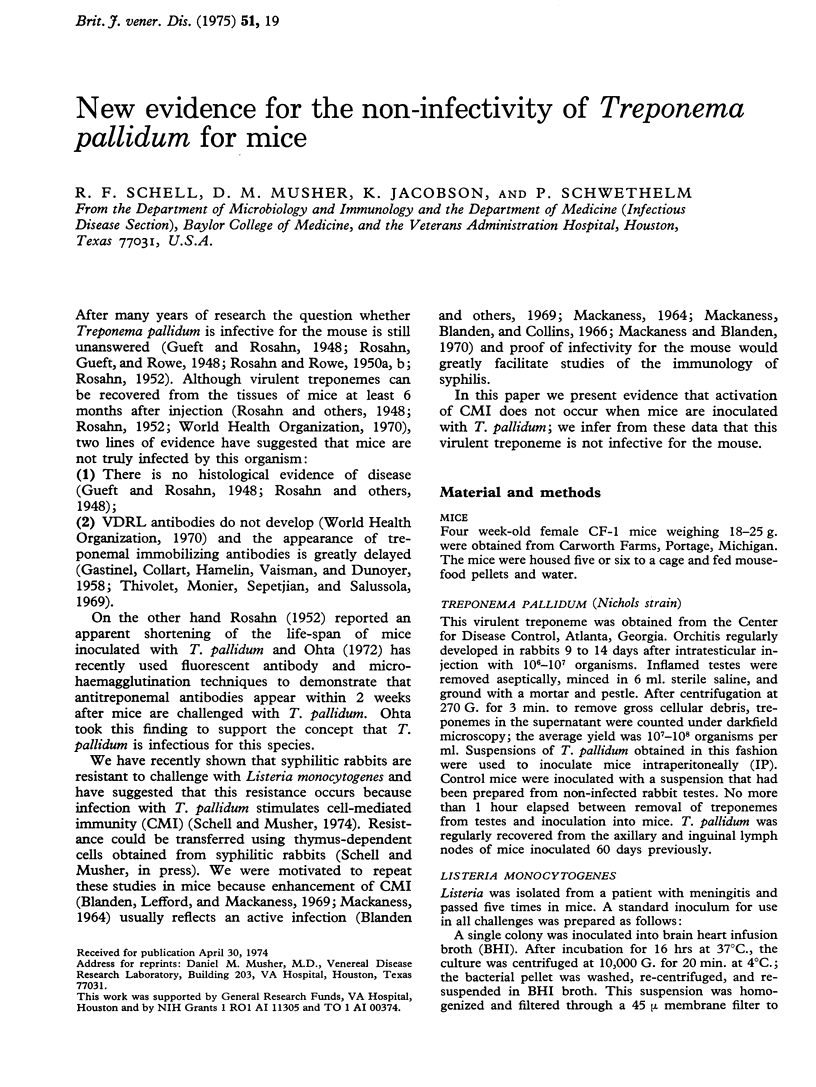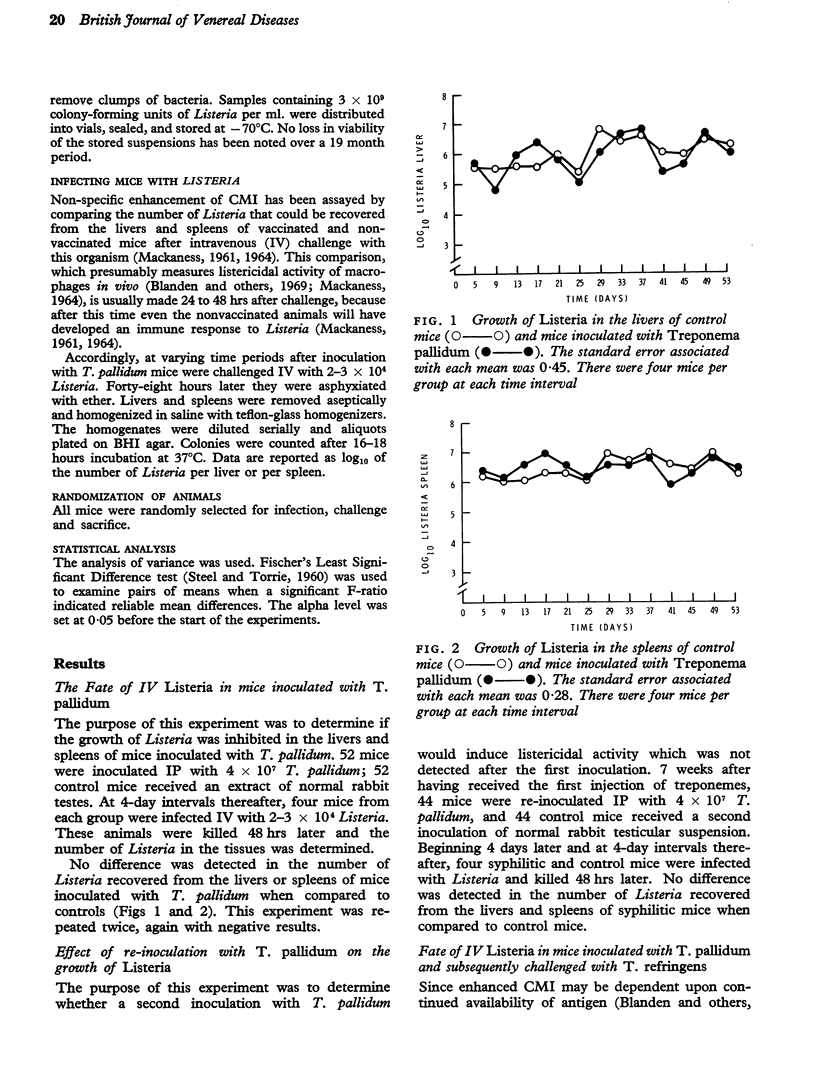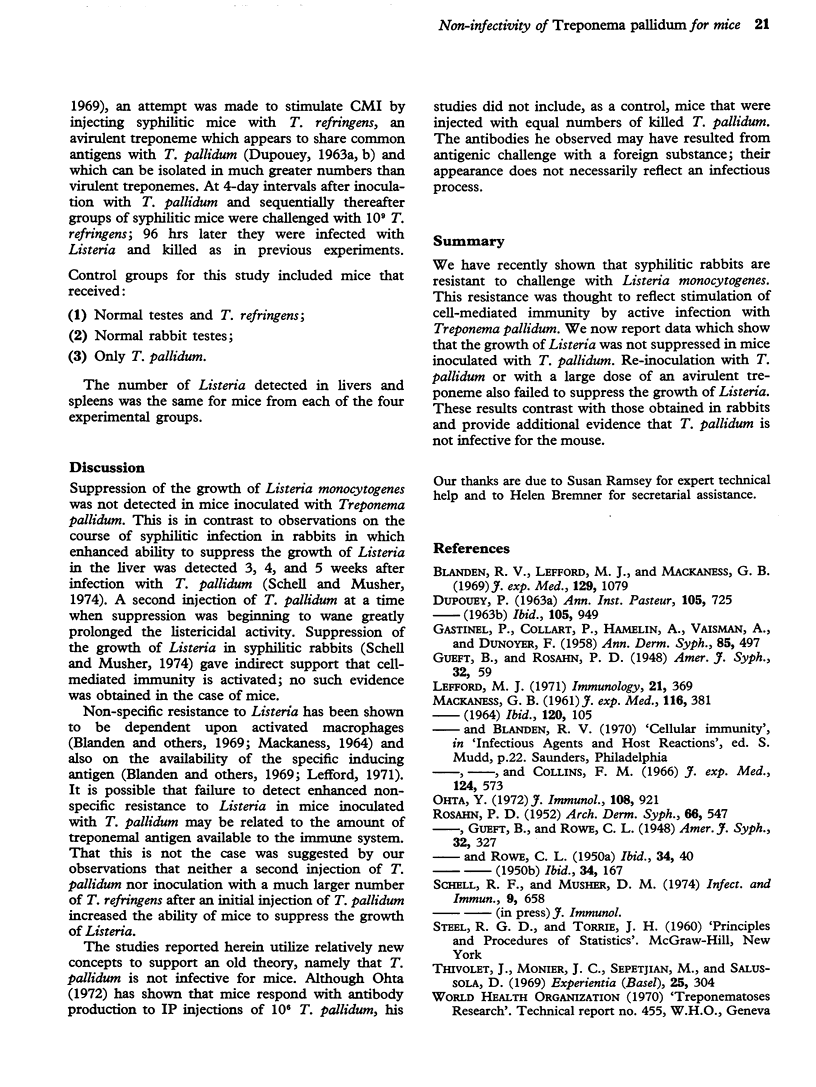Abstract
We have recently shown that syphilitic rabbits are resistant to challenge with Listeria monocytogenes. This resistance was thought to reflect stimulation of cell-mediated immunity by active infection with Treponema pallidum. We now report data which show that the growth of Listeria was not suppressed in mice inoculated with T. pallidum. Re-inoculation with T, pallidum or with a large dose of an avirulent treponeme also failed to suppress the growth of Listeria. These results contrast with those obtained in rabbits and provide additional evidence that T. pallidum is not infective for the mouse.
Full text
PDF


Selected References
These references are in PubMed. This may not be the complete list of references from this article.
- Blanden R. V., Lefford M. J., Mackaness G. B. The host response to Calmette-Guérin bacillus infection in mice. J Exp Med. 1969 May 1;129(5):1079–1107. doi: 10.1084/jem.129.5.1079. [DOI] [PMC free article] [PubMed] [Google Scholar]
- GASTINEL P., COLLART P., HAMELIN A., VAISMAN A., DUNOYER F. Les enseignements de la syphilis expérimentale dans l'interprétation du test de nelson; deuxieme mémoire. Ann Dermatol Syphiligr (Paris) 1958 Sep-Oct;85(5):497–508. [PubMed] [Google Scholar]
- Lefford M. J. The effect of inoculum size on the immune response to BCG infection in mice. Immunology. 1971 Aug;21(2):369–381. [PMC free article] [PubMed] [Google Scholar]
- MACKANESS G. B. Cellular resistance to infection. J Exp Med. 1962 Sep 1;116:381–406. doi: 10.1084/jem.116.3.381. [DOI] [PMC free article] [PubMed] [Google Scholar]
- Mackaness G. B., Blanden R. V., Collins F. M. Host-parasite relations in mouse typhoid. J Exp Med. 1966 Oct 1;124(4):573–583. doi: 10.1084/jem.124.4.573. [DOI] [PMC free article] [PubMed] [Google Scholar]
- Ota Y. Treponema pallidum antibodies in syphilitic mice as determined by immunofluorescence and passive hemagglutination techniques. J Immunol. 1972 Apr;108(4):921–926. [PubMed] [Google Scholar]
- ROSAHN P. D. The adverse influence of syphilitic infection on the longevity of mice and men. AMA Arch Derm Syphilol. 1952 Nov;66(5):547–568. doi: 10.1001/archderm.1952.01530300003001. [DOI] [PubMed] [Google Scholar]
- Schell R. F., Musher D. M. Detection of nonspecific resistance to Listeria monocytogenes in rabbits infected with Treponema pallidum. Infect Immun. 1974 Apr;9(4):658–662. doi: 10.1128/iai.9.4.658-662.1974. [DOI] [PMC free article] [PubMed] [Google Scholar]
- Thivolet J., Monier J. C., Sepetjian M., Salussola D. Etude sérologique après inoculation de Treponema pallidum chez des souris normales et thymectomisées à la naissance. Experientia. 1969 Mar 15;25(3):304–305. doi: 10.1007/BF02034410. [DOI] [PubMed] [Google Scholar]


